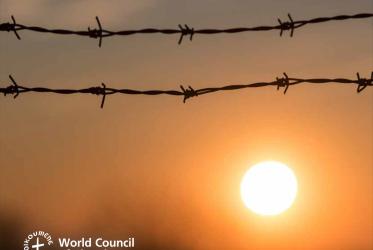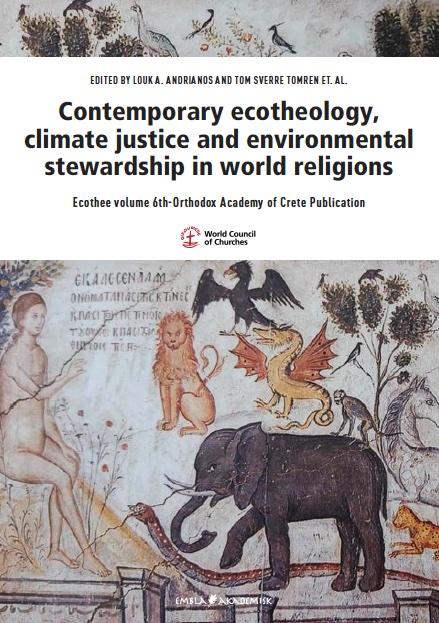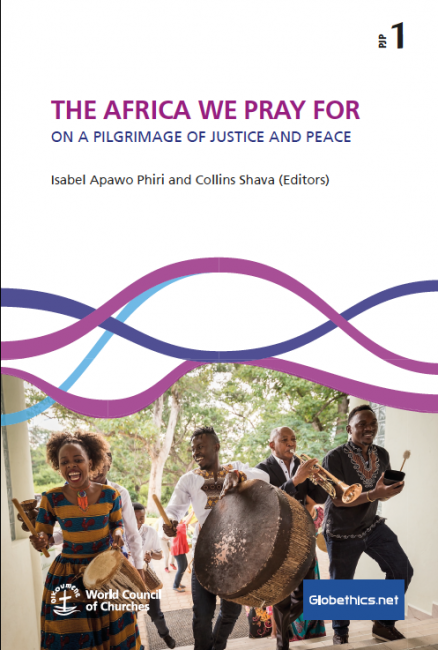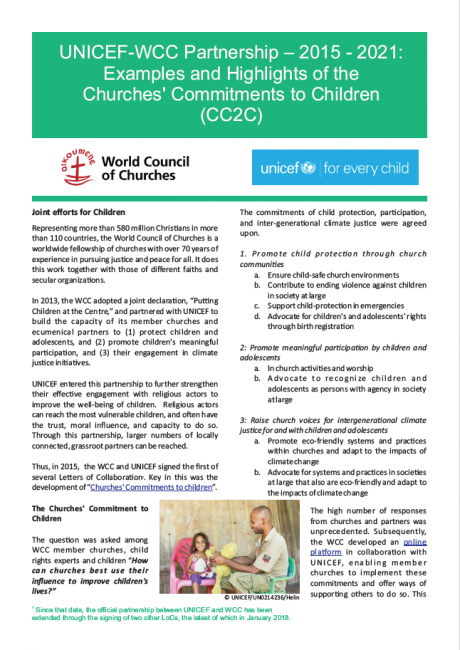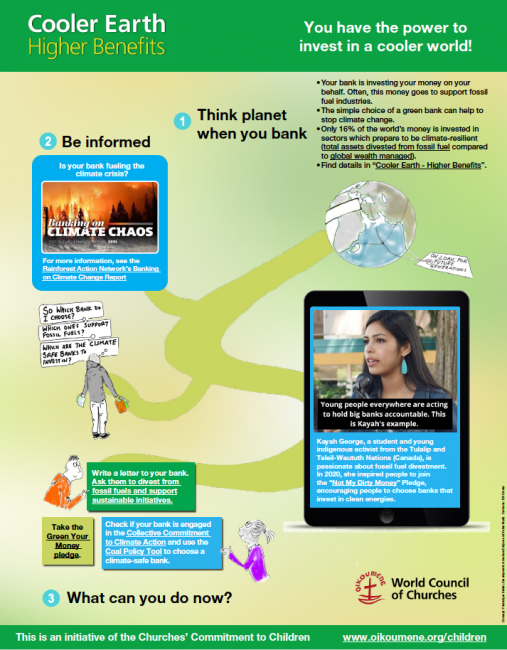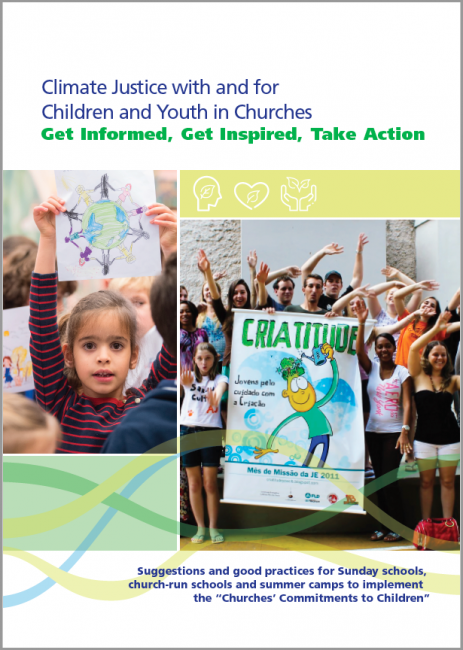Displaying 1 - 20 of 67
Cooler Earth - Higher Benefits (Third Edition)
Actions by those who care about children, climate, and finance
16 August 2022
Contemporary Ecotheology, Climate Justice and Environmental Stewardship in World Religions
Ecothee Volume 6th-Orthodox Academy of Crete Publication
19 December 2021
Walk the Talk
A Toolkit to Accompany the "Roadmap for Congregations, Communities and Churches for an Economy of Life and Ecological Justice"
31 August 2021
Ecumenical International Youth Day 2021 Event Toolkit
Young People and Climate Justice
06 August 2021
Cooler Earth Higher Benefits: Poster
Actions by those who care about children, climate and finance.
16 July 2021
Climate Justice with and for Children and Youth in Churches
Get Informed, Get Inspired, Take Action
25 October 2020
